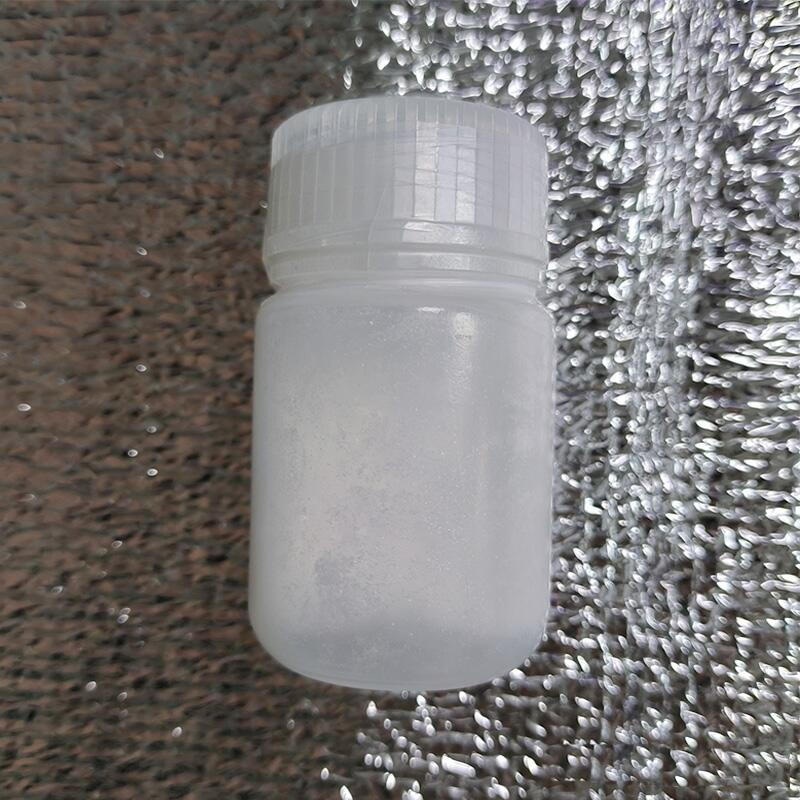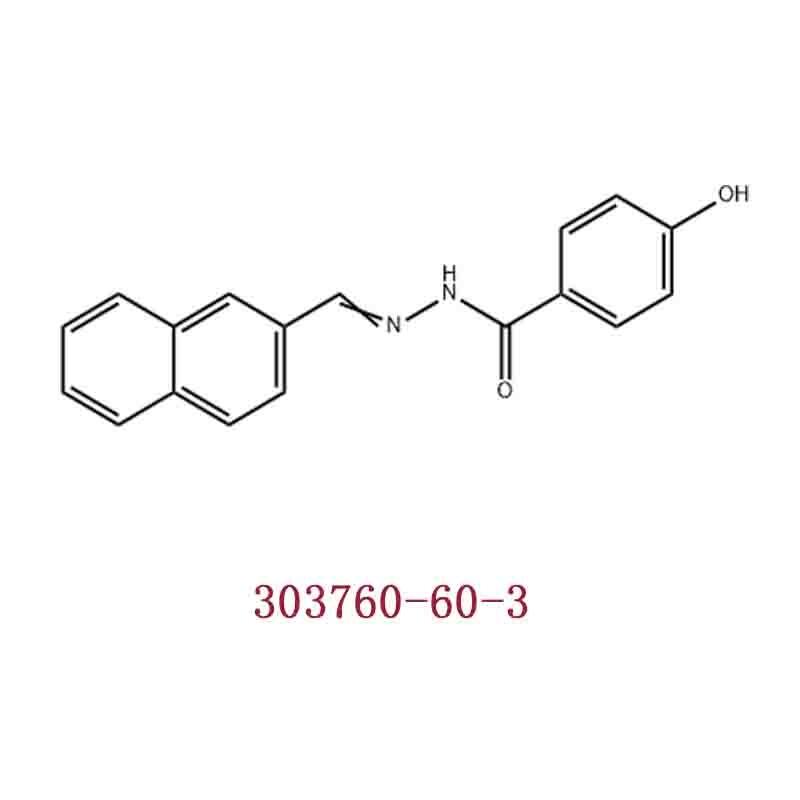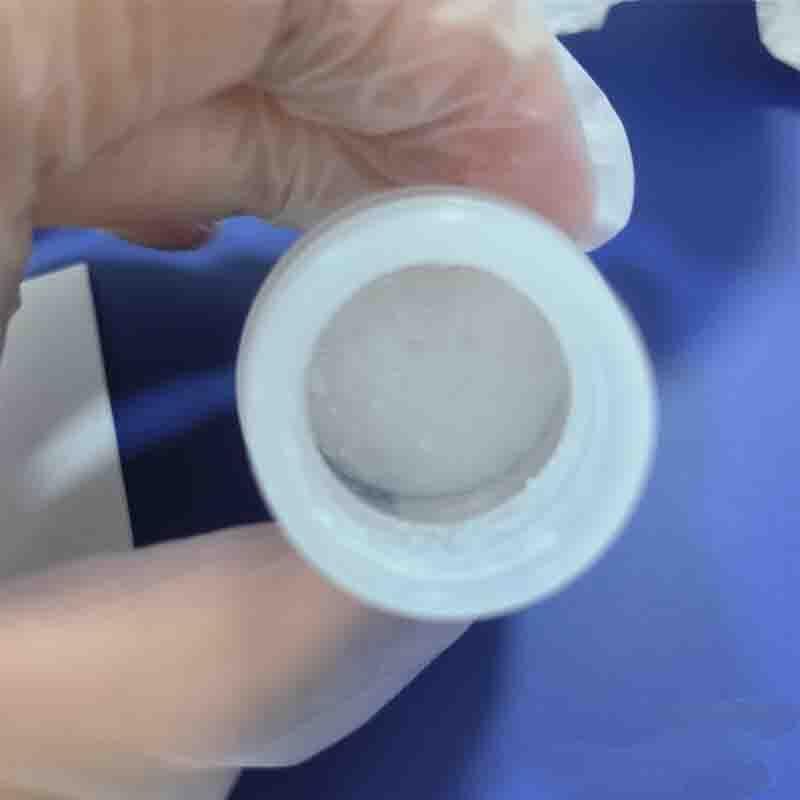-
Categories
-
Pharmaceutical Intermediates
-
Active Pharmaceutical Ingredients
-
Food Additives
- Industrial Coatings
- Agrochemicals
- Dyes and Pigments
- Surfactant
- Flavors and Fragrances
- Chemical Reagents
- Catalyst and Auxiliary
- Natural Products
- Inorganic Chemistry
-
Organic Chemistry
-
Biochemical Engineering
- Analytical Chemistry
-
Cosmetic Ingredient
- Water Treatment Chemical
-
Pharmaceutical Intermediates
Promotion
ECHEMI Mall
Wholesale
Weekly Price
Exhibition
News
-
Trade Service
For medical professionals only
The prevalence of IBS-C is high, "multi-dimensional" affects the life of patients, clinical diagnosis needs to be based on typical symptoms, and the new secretion-promoting agent has a double effect to comprehensively improve the symptoms
of IBS-C patients.
Irritable bowel syndrome (IBS) is a gastrointestinal disorder, and its subtype of constipation-type irritable bowel syndrome (IBS-C) has chronic constipation, abdominal pain, bloating or abdominal discomfort as the main clinical symptoms, which seriously affects the quality of life of patients [1].
Recently, the "medical community" specially invited Professor Zou Duowu from Ruijin Hospital affiliated to Shanghai Jiao Tong University School of Medicine to share
related topics such as the prevalence of IBS-C in China, diagnostic criteria, clinical treatment options, and the advantages of secretory enhancers in the treatment of IBS-C.
The prevalence of IBS-C is high, the symptoms are recurrent, and the "multidimensional" affects the patient's life
"Functional gastrointestinal disease is a group of digestive diseases commonly found in clinical practice, and community surveys in China found that the prevalence of functional gastrointestinal disease is 41.
6%[2]
.
" Professor Zou Duowu said, "Among patients with functional gastrointestinal diseases, IBS
is characterized by recurrent abdominal pain accompanied by changes in bowel habits.
The overall prevalence of IBS in the general population in China is 1.
4%~11.
5%[1].
The prevalence reported by studies varied widely due to different survey methods and diagnostic criteria, but overall, the prevalence of IBS was high
.
Of these, about 20% are IBS-C [3].
"IBS-C has abdominal pain, bloating, abdominal discomfort, and constipation as the main symptoms, and abdominal symptoms as prominent symptoms [1].
Professor Zou said: "IBS-C is a chronic and recurrent disease, which can be induced by many factors to cause symptoms, especially the recurrence of abdominal symptoms, which greatly reduces the quality of life and working capacity
of IBS-C patients.
"Studies have shown that abdominal pain is more frequent in IBS-C patients compared to diarrhea-type irritable bowel syndrome (IBS-D) [4].
The recurrent occurrence of abdominal symptoms and the difficulty of cure, on the one hand, lead to bad emotions and reduce the patient's social function; On the other hand, it leads to repeated medical treatment by patients, resulting in an increase in the time cost and economic cost of patients, as well as a waste of medical resources [3].
Exclusionary testing is "time-consuming and laborious", and Chinese and foreign guidelines jointly recommend the diagnosis of IBS-C based on typical symptoms
The prevalence of IBS is high, but patients with formal clinical diagnosis are only the "tip of the iceberg"
.
"China is a country with a high incidence of digestive system tumors, and for patients with digestive tract symptoms, doctors often consider screening to exclude tumors
.
" Professor Zou said, "However, IBS patients usually need repeated visits, and if unnecessary invasive or special examinations are performed each time, it will aggravate the patient's anxiety about symptoms, and eventually lead to repeated medical treatment, forming a vicious circle, which greatly affects the good establishment of doctor-patient relationship [5,6]
.
" Therefore, in order to reduce the frequency of repeated examinations in clinical patients, the consensus of guidelines at home and abroad recommends that IBS should be diagnosed
based on symptoms.
"In the 2020 American Gastroenterological College (ACG) published clinical practice guidelines for IBS, the Rome IV diagnostic criteria are recommended for diagnosis
.
Rome IV is an important reference for the diagnosis of functional gastrointestinal diseases, and it is also recommended to diagnose IBS based on symptoms, but its diagnostic criteria are slightly different
from those recommended by the consensus in China.
The diagnostic criteria for Rome IV are those who have had symptoms of IBS for at least six months and at least one episode of abdominal pain per week in the last three months, accompanied by changes in stool frequency and character and/or changes in the degree of abdominal pain associated with bowel movements [7].
Abdominal discomfort and bloating are not necessary for the diagnosis of IBS
.
Foreign studies have shown that removing "abdominal discomfort" has little effect on the diagnosis of IBS
.
Clinical research data in China show that among IBS patients who meet the diagnostic criteria of Rome III.
, more than 1/4 of patients have only abdominal discomfort [1].
That is, strict adherence to the Roman diagnostic criteria may exclude some patients who do not meet the diagnostic criteria but require the same treatment regimen, resulting in missed diagnosis
.
In this regard, Professor Zou pointed out: "The diagnosis of IBS-C needs to be combined with the actual situation in China, and the diagnosis of typical symptoms is the dominant in clinical practice, and there is no need to stick to the Rome IV standard
.
”
Therefore, the 2020 Chinese Expert Consensus Opinion on Irritable Bowel Syndrome (hereinafter referred to as the "China IBS Consensus") points out that the diagnosis of IBS is mainly based on symptoms, it is not an exclusionary diagnosis, and auxiliary tests
should be selected if necessary 。 The "Chinese IBS Consensus" also recommends IBS diagnostic criteria with a diagnostic compliance rate of 75%~86%: recurrent abdominal pain, abdominal distention, abdominal discomfort, with any 2 or more of the following ((1) related to bowel movements; (2) accompanied by changes in the frequency of bowel movements; (3) accompanied by changes in fecal traits or appearance), symptoms before diagnosis appear for at least 6 months, and the above diagnostic criteria
are met in the past 3 months.
The 6-month course of disease mentioned in this criterion increases the diagnosis rate of IBS, allows more patients to be diagnosed early, and is sufficient to exclude organic disease [1].
The relationship between abdominal symptoms and bowel movements is the key point in the diagnosis of IBS-C and other functional bowel diseases [1], so for the clinical diagnosis of IBS-C, attention should be paid to abdominal symptoms
.
In a survey of IBS patients in China, the top three symptoms of patients were abdominal pain, abdominal discomfort and bloating, of which the incidence of abdominal pain was 35.
8%, which was more common in the periumbilical and epigastric regions, and could occur after eating or before defecation; Abdominal discomfort was 21.
1% and bloating was 17.
9% [8], which may be relieved
with bowel movements.
It can be seen that abdominal discomfort and bloating account for a large proportion of Chinese IBS-C patients and should not be ignored
in diagnosis.
"In the process of clinical practice, doctors can diagnose IBS-C at the first time and carry out corresponding treatment
according to the typical symptoms of patients and the necessary examinations of previous patients.
" Professor Zou concluded
.
IBS-C treatment needs to take into account a variety of symptom improvement, and new secretionagogues show advantages
"The essence of diseases like IBS-C is abnormal
brain-gut interaction.
There are differences in the etiology of different patients, and the main symptoms may also be different, so it is necessary to consider the cause and symptoms of patients at the same time to develop a comprehensive and individualized treatment plan
.
Professor Zou emphasized, "Before treatment, it is necessary to establish a good doctor-patient relationship, and doctors should dare to diagnose and help patients fully understand the characteristics of IBS-C diseases, establish correct bowel awareness, and carry out effective disease management to better cooperate with doctors' treatment
.
" ”
The Chinese IBS Consensus states that the treatment goal of IBS-C is to improve symptoms and improve quality of life
.
Its treatment methods include: diet and lifestyle modification, psychological cognitive and behavioral guidance, and drug treatment [1].
Diet and lifestyle modifications are the starting point of the IBS-C disease management process, and related lifestyle modifications can be beneficial
in improving symptoms.
Professor Zou pointed out that relaxing emotions, living a regular life, and avoiding eating foods that induce symptoms can alleviate patients' symptoms
to a certain extent.
Psychocognitive and behavioral guidance is a necessary part of IBS-C treatment, and psychotherapy is effective for some IBS-C patients, but only in
qualified medical institutions.
"Drug treatment needs to be selected according to the main symptoms of the patient, and antispasmodics, traditional laxatives and prokinetic agents are currently commonly used in clinical practice
.
" Professor Zou introduced
.
Antispasmodic agents can relieve intestinal smooth muscle spasm in IBS-C patients, and have obvious effects on abdominal pain, but cannot improve the symptoms of
constipation in patients.
Permeable laxatives can form a hypertonic environment through the intestinal lumen, soften stool, speed up intestinal transit, and increase the frequency of bowel movements in IBS-C patients, but do not relieve abdominal pain and abdominal discomfort in patients; Some dissolving laxatives may also worsen abdominal symptoms
.
"Traditional treatment can only relieve a certain symptom of the patient, so clinical use is often required
.
" Professor Zou said, "The launch of new secretion enhancers has changed this situation
.
”
One drug and double effect improve the overall symptoms of IBS-C, and linaclotide achieves efficacy and safety
Secretagogues promote intestinal epithelial cell secretion by activating intestinal epithelial cell-associated ion channels, thereby softening stool and improving symptoms of
constipation.
Guanylate cyclase-C (GC-C) receptor agonists represented by linaclotide also have obvious effects
on abdominal pain.
The drug can bind to GC-C, increase the concentration of intracellular/outer cyclic guanosine monophosphate (cGMP), thereby accelerating gastrointestinal peristalsis and increasing the frequency of bowel movements; It also reduces pain nerve signaling and relieves symptoms of abdominal pain [9,10].
One drug has dual effect, and solves the two major problems
of bowel movement and abdominal pain relief at the same time.
At the same time, linalocotide can also improve other abdominal symptoms
in patients.
A recent phase 3B study showed that 290 μg of linalocotide administered for 12 weeks significantly reduced a variety of abdominal symptoms such as bloating, abdominal discomfort, and abdominal pain in IBS-C patients by 40.
5% [11].
Another Asia-Pacific, multicenter, randomized controlled trial including Chinese-focused Asia-Pacific also showed that linaclotide significantly improved constipation, abdominal pain, bloating, abdominal discomfort, and overall symptoms in IBS-C patients [12].
Speaking about the safety of linanopolytide, Professor Zou said: "According to the results of pre-marketing trials and post-marketing clinical observations, the overall safety of linanopeptide is high
.
"The drug is not absorbed in the gastrointestinal tract, does not produce systemic side effects, does not interfere with the absorption of other drugs, and does not interact
with other drugs.
" Studies have shown that the most common adverse event of linanopolytide is diarrhea, which is mostly mild and moderate, and rarely severe [13].
Professor Zou concluded: "It is precisely because of the advantages of new secretagogues such as linaclotide that effectively relieve constipation, a variety of abdominal symptoms, and high safety, it is recommended by the China IBS Consensus as a class I drug
for IBS-C treatment.
”
- Professor, chief physician, doctoral supervisor
- Director of the Department of Gastroenterology and Endoscopy Center, Ruijin Hospital, Shanghai Jiao Tong University School of Medicine
- Member of the Standing Committee of the Gastroenterology Branch of the Chinese Medical Association
- Leader of the esophageal disease collaborative group of the Gastroenterology Branch of the Chinese Medical Association
- Deputy leader of the Big Data Collaboration Group of the Digestive Endoscopy Branch of the Chinese Medical Association
- Member of the Continuing Education Group and the Capsule Endoscopy Collaborative Group of the Digestive Endoscopy Branch of the Chinese Medical Association
- Member of the Standing Committee of the Gastroenterologist Branch of the Chinese Medical Doctor Association
- Member of the Standing Committee of the Endoscopist Branch of the Chinese Medical Doctor Association
- Chairman-elect of the Gastroenterology Branch of Shanghai Medical Association
- Vice Chairman of the Neurogastroenterology Committee of the Chinese Research Hospital Association
- Deputy Editor-in-Chief of Chinese Journal of Digestion
Chinese Journal of Digestion,2020,40(12):803-18 [2]LONG Y,et al.
Neurogastroenterol Motil,2017 (2016-07-14). [3]ZHAO Y,et al.
Alimentary pharmacology&therapeutics,2010,32(4):562-72.
[4]SHAH E,et al.
The American journal of gastroenterology,2020,115(2):294-301.
[5] Qiao Yuqi, et al.
Chinese Journal of Internal Medicine.
2009(6):519-521.
[6]Longstreth GF, et al.
Clin Gastroenterol Hepatol.
2005 Apr; 3(4):397-400.
[7]Drossman DA, et al.
Gastroenterology.
2016 Feb 19.
[8] Li Li, et al.
Chinese Journal of Digestion,2015,35(07):446-450 [9]Thomas RH, Luthin DR.
Pharmacotherapy 2015,35(6):613-630.
[10]Ford AC, et al.
Am J Gastroenterol 2014,109 Suppl 1: S2-26; quiz S27.
[11]Chang L,et al.
Am J Gastroenterol.
2021,116(9):1929-1937.
[12]Yang Y,et al.
J Gastroenterol Hepatol.
2018,33(5):980-989.
[13]Chey WD,et al.
AmJ Gastroenterol.
2012,107(11):1702-1712.
The web version of the doctor's station is online
Scan the QR code to directly view more clinical knowledge of gastroenterology and hepatology
👇👇👇This information is for medical and scientific reference only and is not recommended for use in any manner inconsistent with the prescribed information approved in your country.







